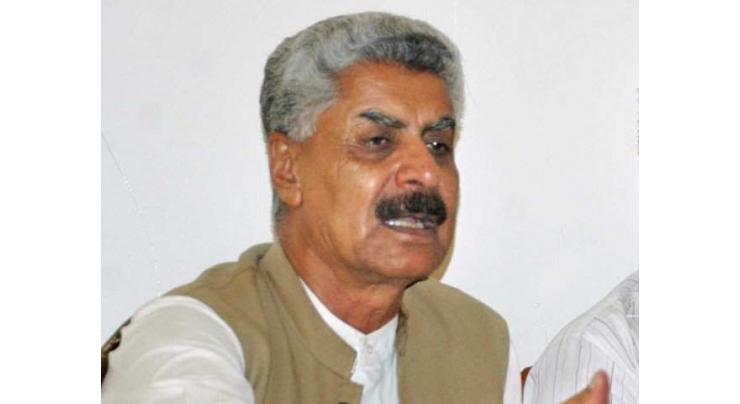
Sartaj-FATA-Report
Fakhir Rizvi Published August 25, 2016 | 04:57 PM

ISLAMABAD (UrduPoint / Pakistan Point News -25th Augst,2016) The FATA Reforms Committee also favoured repealing the existing Frontier Crimes Regulation (FCR) with the new "Tribal Areas Rewaj Act" and the Jirga system. Minister for SAFRON Lt.
Gen. (Rtd.) Abdul Qadir Baloch responding to a question said that during the consultations all stakeholders expressed unanimity on the Rewaj Act, terming it part of their age-old tradition. He however dispelled the impression that it would be in conflict with the existing laws of the country. He said the provisions relating to collective responsibility in the FCR will be omitted in the new Act, thereby making an individual responsible for his own acts.
Under this act the judge will not be the political agent but will be a judicial officer. While the jurisdiction of the Supreme Court and High Court shall stand extended to FATA. The Jirga system will remain prevalent in criminal and civil disputes, while it was also proposed to codify the "Rewaj" in each agency. The Committee also proposed to carry out land settlement in FATA so that this land asset can be capitalized to release locked up funds.
Following an over eight month long "extensive consultative process" the committee held meetings with parliamentarians from Federally Administered Tribal Areas (FATA), tribal elders, religious leaders, leaders of major political parties in FATA, the business community, civil society representatives and youth organizations. The six-member FATA Reforms Committee was headed by Chairperson, Advisor to the Prime Minister on Foreign Affairs Sartaj Aziz while its members included Zafar Iqbal Jhagra, Governor KPK, Lt.
Gen. (Retd.) Abdul Qadir Baloch Minister for SAFRON, Zahid Hamid, Minister for Law & Justice, Lt. Gen. (Rtd.) Nasser Khan Janjua National Security Adviser and Muhammad Shehzad Arbab, Secretary SAFRON. The total population in FATA is around five million and comprises the Agencies of Bajaur, Mohmand, Khyber, Orakzai, Kurram, North Waziristan and South Waziristan, besides the Frontier Regions of Peshawar, Kohat, Bannu, Lakki, Tank and D.I.Khan.
Related Topics
Recent Stories

Robinson, bowlers help New Zealand go 2-1 up against Pakistan

Shahzeb Chachar to hold khuli kachehri on April 26

Heatwave amid Israel's aggression in Gaza brings new misery, disease risk

Tourism must change, mayor says as Venice launches entry fee

Court adjourns Judicial Complex attack case till May 17

Nasreen Noori’s book ‘Popatan Jahra Khwab’ launched

Wafaqi Mohtasib inspection team visits Excise and taxation office

AJLAC announces 5th Conference titled ‘People’s Mandate: Safeguarding Civil ..

Pak-US officials engage to enhance trade, investment ties

IBCC to promote educational excellence, expand regional presence

Pakistani 'Blue Helmets' serving UN Peacekeeping Mission in DR Congo set to leav ..

Putin says plans to visit China in May
More Stories From Pakistan
-
Naval Chief participates in 19th Western Pacific Naval Symposium in China
1 hour ago -
Int'l symposium addresses capacity building for safe, environmentally sound ship recycling in Pakist ..
2 hours ago -

Shahzeb Chachar to hold khuli kachehri on April 26
2 hours ago -

Court adjourns Judicial Complex attack case till May 17
2 hours ago -

Nasreen Noori’s book ‘Popatan Jahra Khwab’ launched
2 hours ago -

Wafaqi Mohtasib inspection team visits Excise and taxation office
2 hours ago
-

AJLAC announces 5th Conference titled ‘People’s Mandate: Safeguarding Civil Rights in South Asia ..
3 hours ago -

IBCC to promote educational excellence, expand regional presence
3 hours ago -

Pakistan embassy organizes scholarship award ceremony in Kathmandu
3 hours ago -

SC to hear case pertaining IHC judges' letter on April 30
3 hours ago -

SC orders removal of barriers outside buildings in Karachi
3 hours ago -

PFA launches crackdown, impose fine for selling expired drinks, food items
3 hours ago









